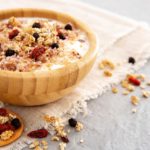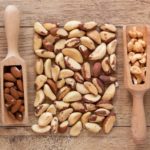
Megan Rodden
(BCS, DipNat, MedHerb, NMHNZ)
Note — The article was checked and updated October 2023.
Jump to:
- What is Zinc?
- Zinc deficiency
- Different types of Zinc
- Health Benefits
- Health Claims
- Best sources of Zinc
- Daily requirements and intake
- How to take zinc supplements
- Signs and symptoms of deficiency
- Risks and side effects
- Interactions - herbs and supplements
- Interaction - medication
- Summary
- Related Questions
Unlike with many other nutrients, our body doesn’t store zinc like it usually does other vitamins and minerals. This can cause issues if our daily nutritional content is not rich in zinc sources, and can lead to zinc deficiency.
Zinc is considered a trace mineral, meaning our body needs only small amounts of it, however, it is also an essential nutrient. In other words, our body cannot produce it.
That is why adequate intake of zinc from nutrition is important on a daily basis to ensure healthy cell growth and to keep our immunity strong.
Let’s see how we can achieve this.
What is Zinc?
Zinc is a mineral that is an essential nutrient for the human body and vital for many important functions.
Zinc is a metallic element that makes up part of the earth’s crust and is a natural mineral found in many foods. The human body only requires very small amounts of zinc to function well, which is why zinc is called a trace mineral or micro nutrient.
The body is unable to produce zinc on its own
Therefore, zinc must be eaten regularly to maintain health.
Zinc has been used in traditional medicine for thousands of years with some of the earliest mentions dating from 500 BC, in both ancient Greek and Ayurvedic texts.
RELATED — Introduction to Ayurveda: Ancient medicinal healing methods
In more modern times health problems caused by low zinc levels were first identified in the Middle East by Ananda Prasad with his study of zinc deficiencies in the 1960’s.

His studies lead to a greater understanding of health conditions affected by zinc levels and in particular the importance of zinc for growth.[1]
Zinc deficiency
Zinc deficiency is a condition where the body is not getting enough zinc to function well for daily needs. This is because we are
- Not eating good sources of zinc
- And / or have problems absorbing zinc through our gut
Zinc is only needed in small amounts, however, it is critical because it’s used by the body in chemical reactions and is especially important for the immune system, making DNA and during times of growth.
Zinc deficiency is a common global problem
Our modern diet, farming and food processing all contribute to zinc deficiency.
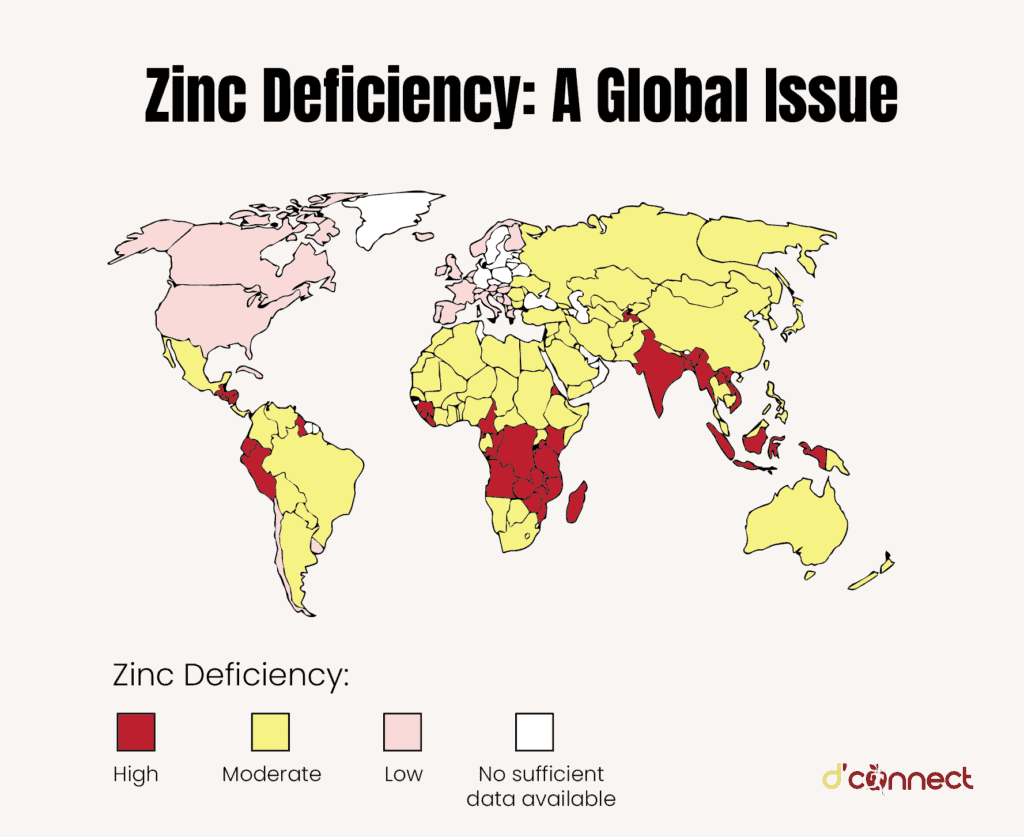
Zinc can be found in many foods although the amount of zinc in food can be affected by the quality of the soil and the way that food is prepared.
Diets high in cereal based foods make zinc difficult to absorb due to a substance in grains called phytates and people who eat rice as their staple food are often zinc deficient.
Some countries with high rates of zinc deficiency, such as Indonesia and Mexico, now add extra zinc to their food to help increase the daily intake.
Who is most at risk of zinc deficiency?
Zinc deficiency can occur in anyone eating less zinc than their body needs and it is estimated that around 17% of the world’s population are deficient, however some people are at higher risk.[2]
Kiwis are at an increased risk for zinc deficiency because New Zealand soils are naturally deficient in some minerals, including zinc.
Minerals take time to break down from the rock bed and deposit into soil. The land of New Zealand is young and therefore the soil has not had time to become fully enriched and the few areas of rich volcanic soil have been partly depleted through modern farming practices.
Growing and the importance of zinc
During periods of growth there is increased demand for zinc, such as puberty, pregnancy and infancy – especially babies on a low zinc formula.

Pregnant and breastfeeding women
Zinc demands increase during pregnancy and breastfeeding by 4-5mg daily to cater for both mum and baby, so diet sources need to increase to prevent deficiency.
Vegan and Vegetarian diets
Animal foods are good sources of zinc and diets with lots of beans and grains can be low in zinc as their phytate content can interfere with absorption.
RELATED — What is a plant-based diet: Vegan or Vegetarian?
This is why naturopaths recommend soaking grains, nuts and seeds before eating them to help remove some of the phytates.
Gastrointestinal disorders
Gut problems such as Crohn’s disease, ulcerative colitis, or having gastric surgery can all lower the ability to absorb zinc.
Sickle cell disease
Individuals with sickle cell diseases need higher levels of zinc in the body.
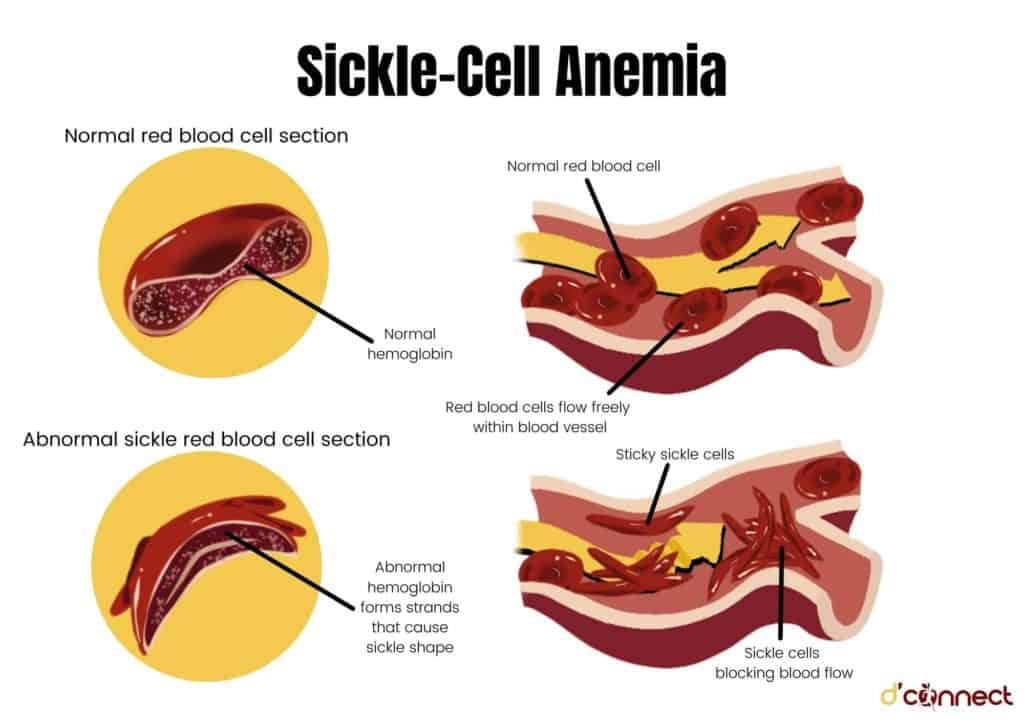
Eating disorders
Periods of fasting or starvation for example from anorexia and bulimia can lead to depleted zinc levels.
RELATED — Understanding Eating Disorders: History, Types and Statistics
Alcoholism
Alcohol consumption causes extra zinc to be lost through urine and less ability to absorb it from the gut.
Kidney disease
Having a kidney disease causes the body to lose extra zinc through urine.
Diets high in refined grains
Diets that are high in white flour based foods, have less nutritional zinc because zinc is lost in the refining process.
Increased copper intake
Zinc and copper are the two metals that interact and compete for absorption.
High copper levels reduce levels of zinc
High copper levels can be caused by taking too many copper supplements, drinking contaminated water, or from health conditions, such as Wilson Disease, which stops the body from getting rid of excess copper.
RELATED — Copper: Heart, Hair and Skin Health
Birth control pills
Women on birth control pills often have increased levels of copper and require increased zinc.
Elderly people and seniors
As we get older our digestion changes and zinc absorption capacity can reduce as well as intake in the diet.
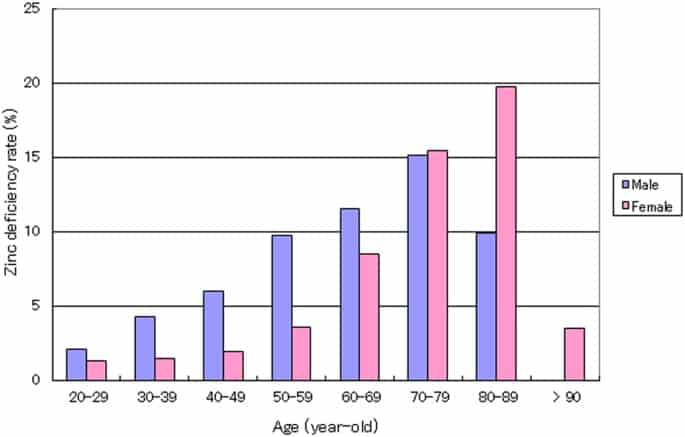
Important to mention is that the body also uses additional zinc during times of
- High stress – emotional and physical
- Healing, surgery or injuries
- During weight loss
- After increased sweating (high intensity workouts or from overheating)
Also, we need to be aware that there a different forms or zinc, which all have different levels of absorption.
Different types of Zinc
If we have a zinc deficiency and need to take a supplement, we will find that there are many different types of zinc available.
Each type works slightly differently in the body, some are more easily absorbed than others, some benefit the skin while others work well for the gut, which is why it is helpful to read the label and consult a health professional before choosing a supplement.
Chelated zinc
This type of zinc has been paired with a substance (usually an amino acid or organic acid) that helps our body to absorb it easily by bonding to it and making it water soluble.
The following types of chelated zinc are the easiest to absorb.
Zinc acetate
This form is known to be a common cold remedy ingredient, for example in chewable tablets, lozenges and sprays.
Zinc bisglycinate
Also known as zinc glycinate, is well tolerated and absorbed by the body and generally considered by many practitioners as the best form of zinc to use as a supplement for general zinc deficiency.
Zinc citrate
This is a common form and found to be well tolerated in terms of taste.
Zinc monomethionine
Zinc monomethionine is believed to be bioavailable, however there are less studies available to support this.
Zinc orotate
This form binds zinc with orotic acid and increases the zinc’s ability to move into cells and tissues so this form is often used to treat general zinc deficiency.
Zinc picolinate
This form of zinc has been used as a supplement for the longest and has the most clinical trials supporting it, however it is one of the most expensive forms.
Zinc gluconate
Similar to zinc acetate, this form is often found in cold and flu remedies.
Zinc sulfate
Zinc sulfate is usually the cheapest available form but the body absorbs it less than others and can cause stomach irritation. However, it has been found to benefit acne sufferers.
Zinc oxide
Zinc oxide is most often used in topical treatments for the skin, such as nappy rash creams.
When deciding which form of zinc to prescribe, I work to match the type of zinc with the individual’s specific needs. For general and significant zinc deficiency my preference is zinc bisglycinate because it is really well tolerated and absorbed, and I see results quickly.
In terms of value for money, I also prescribe zinc citrate. It is less expensive whilst still tolerable and effective and used in many good supplements.
Health benefits of Zinc
Zinc is constantly used by the body in many important functions so it is not surprising that it also has numerous potential health benefits from both diet and supplements.
Zinc is most well known as a treatment for wounds and to support a healthy immune system, however there are many more health benefits.
Growth and development
We mentioned earlier that zinc is needed to make DNA, which is very important when we are growing and developing.
Zinc is important for bones and teeth
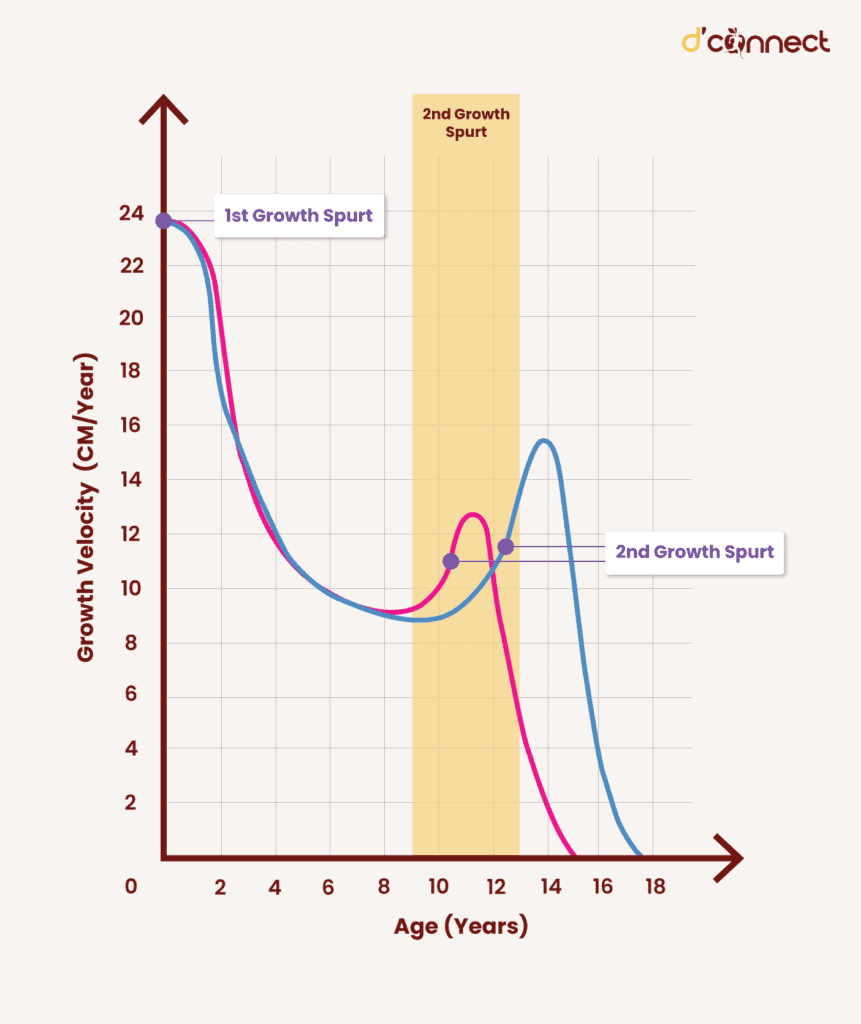
This means that children may benefit from increasing zinc intake during major growth spurts, e.g. when their bones are lengthening.[3]
Supporting immune system
The cells of the immune system need zinc to function properly.
It has been shown that when the body is deficient in zinc the growth and function of defence cells is impaired with more frequent infections occurring, such as viruses, bacteria and parasites.[4]
Wound healing
Zinc helps with the development of new skin cells and has been used to treat wounds for centuries. Zinc has been shown to play an important role in all stages of the healing of a wound.[5]
Enzymatic reactions
Zinc can be found in every single human cell where this mineral helps create or speed up around 300 different enzyme reactions, helping with many different bodily functions .
This means that very specific amounts of zinc are needed in each cell for this to work properly.[6]
Boosting activity of T-cells
Zinc has a complex effect on the function of T-cells, and it has been shown that ideal levels of zinc are needed for healthy T-cell production, which may help the body to fight infections.[7]
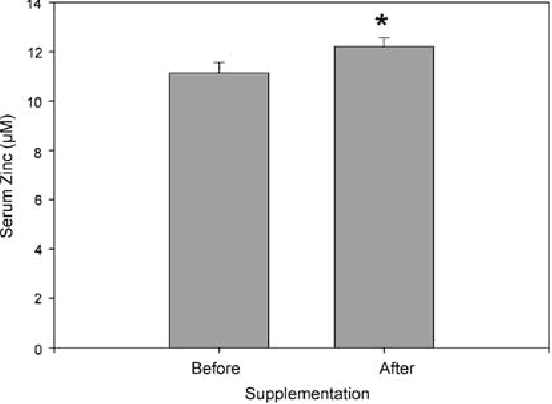
Skin health
Zinc is needed for healthy skin cells and healing, and has been used to treat acne for decades with clinical trials showing an anti-inflammatory benefit.[8]
Gastroenteritis
Zinc supplementation has been shown to be a useful treatment for children with gastroenteritis and diarrhoea with the benefits of shortening the illness.[9]
Weight gain
Zinc supplementation may influence weight gain. Studies show that it can benefit infant weight gain in cases of premature births or in neonatal hospital care.[10]
Osteoporosis
Zinc is an important nutrient for bone health and has been shown to be restorative when taken in certain chelated forms such as zinc AHZ (zinc beta-alanyl-L-histidinato) or zinc ZAC (zinc acexamate) and indicates potential benefits for osteoporosis.[11]
Managing blood sugar
Zinc along with other key nutrients plays a role in managing sugar levels in the blood and studies have shown benefits for prediabetes.[12]
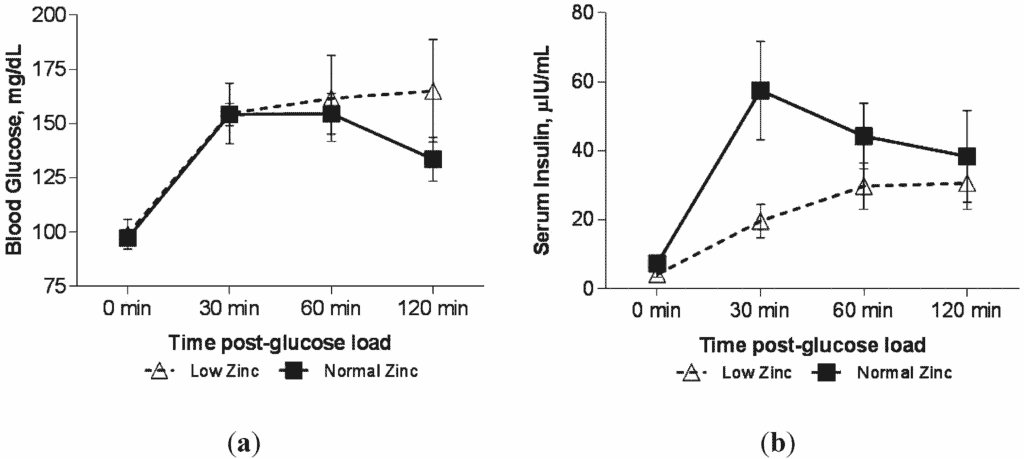
Health claims that still need more evidence and research
Healthy cardiovascular system
While it is known that zinc deficiency causes health problems for the cardiovascular system, it is argued amongst health professionals as to whether extra supplementation is beneficial for this and research is not fully conclusive.[13]
Decreasing risk of preterm birth
Poor nutrition in pregnancy including a lack of zinc has been linked to a higher risk of preterm birth, however studies specifically with zinc have not proved conclusive and more research is needed.[14]
Boosting mental performance
Zinc plays a role in the transmission of brain signals and it is known that zinc deficiency can lead to changes in brain function.
Several studies indicate potential improvements in mental performance with zinc supplements however more research is needed to understand this fully.[15]
Reducing the risk of pneumonia
Zinc deficiency is believed to be linked to a higher risk of pneumonia infection and supplementing has been shown to benefit both elderly and children with pneumonia.
More studies are on the way to support the benefits of zinc for pneumonia.[16,17]
Gene expression
Zinc works as an important cofactor that helps in the process of gene expression, effectively helping them to switch on. Again, more research is needed to confirm benefits of zinc supplementation on gene expression.
Zinc and skincare
Zinc can be found in many skincare products, from sunscreens to cleansers, bringing some of the nutrients natural protective benefits directly to the skin.
Zinc based sunscreens can be great for people prone to acne because they don’t tend to clog the pores.
When looking at skin care ingredients, zinc oxide or zinc pyrithione are often used to make a protective barrier for the skin and can be soothing for conditions, such as dandruff.[18]
Best sources of Zinc
Zinc can be sourced from a variety of healthy foods and eating more natural unprocessed whole foods are the best way to increase zinc in the diet.
The most absorbable zinc sources come from animal foods
Also, those without phytates and foods with good amounts of protein, like shellfish.[19]
Food Sources | Concentration (mg/100g) | Daily Value (DV) Men / Women |
Rock Oysters | 20.25mg | 184% / 253% |
Lamb | 10mg | 90.9% / 125% |
Beef | 8mg | 72.7% / 100% |
Pumpkin seeds | 7.5mg | 68.1% / 93.7% |
Crab | 6.4mg | 58.1% / 80% |
Chia seeds | 5mg | 45.5% / 62.5% |
Cheese | 3.5mg | 31.8% / 43.7% |
Chicken (leg) | 2mg | 18.1% / 25% |
Eggs | 2mg | 18.1% / 25% |
Tofu | 2mg | 18.1% / 25% |
Pork (chop) | 2mg | 18.1% / 25% |
Chickpeas | 1mg | 9% / 12.5% |
Cooked soaked oats | 1mg | 9% / 12.5% |
Shiitake mushrooms | 1mg | 9% / 12.5% |
Yoghurt | 0.6mg | 5.4% / 7.5% |
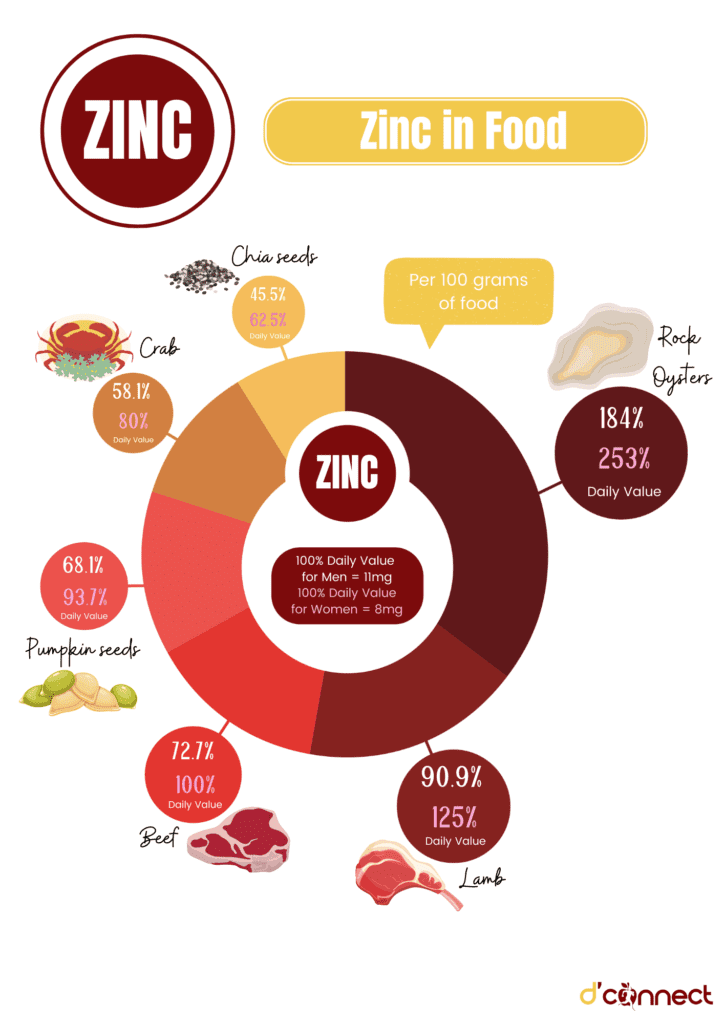
Note — feel free to download and share this illustration.
Daily requirements and recommended intake
The daily requirements for zinc vary according to age, gender and life stage for growth and development needs.
The Recommended Daily Intake (RDI) is a measurement that indicates the amount of zinc a person needs to eat daily to maintain levels for basic average requirements in order to avoid deficiency.
Age | Male | Female |
7-12 months | 3mg | 3mg |
1-3 years | 3mg | 3mg |
4-8 years | 4mg | 4mg |
9-13 years | 6mg | 6mg |
14-18 years | 13mg | 7mg |
19-70 years | 14mg | 8mg |
Pregnancy | – | 11mg |
Breastfeeding | – | 12mg |
These recommendations are estimated from studying the intake and absorption when consuming a standard Australian or New Zealand diet.[20]
How to take zinc supplements
Ideally, zinc supplements should be taken on an empty stomach for optimal absorption, at least three hours away from food.
However some people do find that it causes some stomach upset as a side effect and in this case it is recommended to take the supplement with some complementary food such as eggs or fish.
Avoid taking zinc with foods that contain phytates or oxalates
These include grains, legumes or nuts since they lower the gut’s ability to absorb the nutrient.

Copper containing food or medications should also be avoided as this mineral is known as an antagonist competing for absorption.
Common signs and symptoms of zinc deficiency
There are a variety of signs and symptoms to look out for with zinc deficiency.
In mild zinc deficiency symptoms may be subtle and can be confused with other conditions, however the most common significant signs are those affecting the senses, skin, digestion, as well as growth and development in children and adolescents.
Sense perception and zinc deficiency
Sense perception is affected by a lack of zinc in the cells and often a first sign of mild deficiency.
Reduced taste is common and in children it may look like food fussiness or aversion. Smell, sight and hearing may also be weakened.
Depression and low zinc levels
Systems that control our mood and thinking can be altered by a zinc deficiency and this could show up as major or minor depression as well as mental fatigue.
RELATED — Introduction to: Depression
Hair loss and zinc
Alopecia is linked to zinc deficiency since zinc is required for the growth process and scalp health.

Diarrhoea and gut health
Short term and long term diarrhoea may occur with zinc deficiency and also contribute to zinc deficiency. As mentioned previously, zinc has been used successfully to reduce this in children with gastroenteritis.
Weight loss and inadequate zinc intake
Delayed wound healing and skin lesions
The skin needs zinc in order to heal and maintain a healthy barrier.
In zinc deficiency it is common for rashes or lesions to appear or become worse and wounds, such as ulcers take longer to heal.[23]
Delayed sexual maturation and low nutritional zinc
Zinc deficiency at the age of puberty can lead to late development of the reproductive system for males and females, affecting testicles, sperm and ovaries and egg development.
Hypogonadism in males
Hypogonadism is a condition where the testes do not function properly and if zinc deficiency occurs in teenage males the testes may not fully develop, causing sexual disfunction and fertility problems.
Impotence can appear in males with low zinc levels
Food and environmental allergies
Zinc plays an important role in immune system function and studies also suggest that deficiencies in zinc can increase the risk for allergy development, however more research is needed to fully understand the relationship.[24]
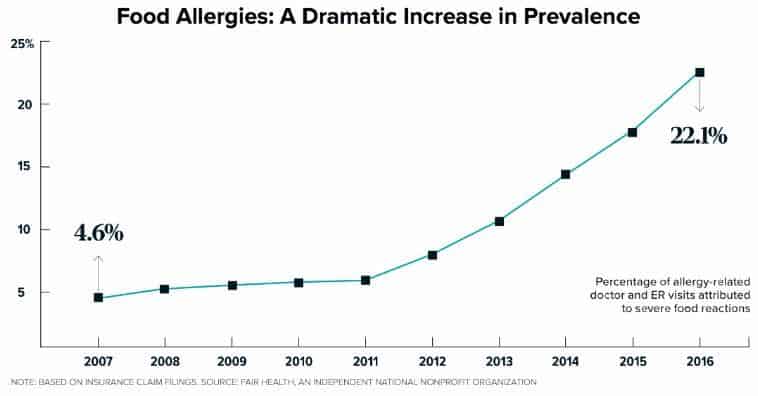
Chronic fatigue syndrome (CFS)
Low zinc levels have been linked to CFS, which is a long term, debilitating condition involving ongoing fatigue.
This is believed to be due to the important role that zinc plays in the immune system and it’s dysfunction in this condition.[25]
Indigestion and gut permeability
Zinc plays a role in the way the body maintains the lining of the gut and the digestion of food.
Zinc deficiency has also been shown to be linked with gut infections known as H. Pylori and this is a common cause of stomach ulcers.[26]
Zinc risks and side effects
We have established that zinc is an incredible nutrient that we cannot function without but there are risks and side effects with having too much.
It is difficult to eat too much zinc and the body has limited ability to store it, so the main concern is with absorbable supplements, at high doses, long term causing the following problems for the body.
Sign and symptoms of zinc toxicity are
- Nausea
- Vomiting
- Loss of appetite
- Diarrhoea
- Anaemia (low iron)
Side effects of excess zinc supplementation are
- Interference with other minerals and their absorption in the body (e.g. copper and iron)
Also, there may be issues with immune function (too much zinc can lead to a weakened immune system and can also cause flu-like symptoms).
Possible interactions with herbs and supplements
Zinc competes with some minerals for absorption, in particular copper and iron and it is best to take these separately (by at least 3 hours).
Also, it is important to avoid combining high doses of calcium and folate as they may reduce the amount of zinc absorbed.
Some herbs may interact with zinc and some caution is recommended.
Dandelion root – this herb has a strong diuretic (water flushing) action and may increase the excretion of zinc, so depletion is possible and consulting with a trained medical herbalist is recommended for safe dosing.
RELATED — Herb of the month: Dandelion (Taraxacum officinale)
Slippery elm and Hoheria (NZ native) – contain mucilage, which is protective and soothing to the gut lining.
However, this may reduce the absorption of minerals. Therefore, it is recommended to take supplements at least three hours away from these herbs.
Possible interactions with medications
The main concern combining medications with zinc is that the absorption of the medicine could be reduced.

Zinc may reduce absorption of:
- Pain relief medications – Non Steroidal Anti-inflammatories (NSAIDs) such as Ibuprofen
- Antibiotics – quinolone and tetracycline antibiotics
- Cancer medication – Cisplatin
- HIV treatment – e.g. Ritonavir, Atazanavir
Other interactions:
- Penicillamine – used for numerous conditions such as Wilson’s disease and rheumatoid arthritis, this medication actually depletes zinc so the interaction is potentially beneficial.
- Immunosuppressants – corticosteroids, prednisone, cyclosporine – caution is advised as zinc may strengthen the immune system and interfere with the treatment.
- Diuretics (water pills) – for example, Amiloride, Hydromox, Hydrochlorothiazide – these medications may cause reduced excretion of zinc through urine so toxicity is a concern.[27]
Caution is always advised when combining nutritional supplements with medications and seeking help from your prescribing doctor as well as a professional trained in nutrition is recommended.
Summary
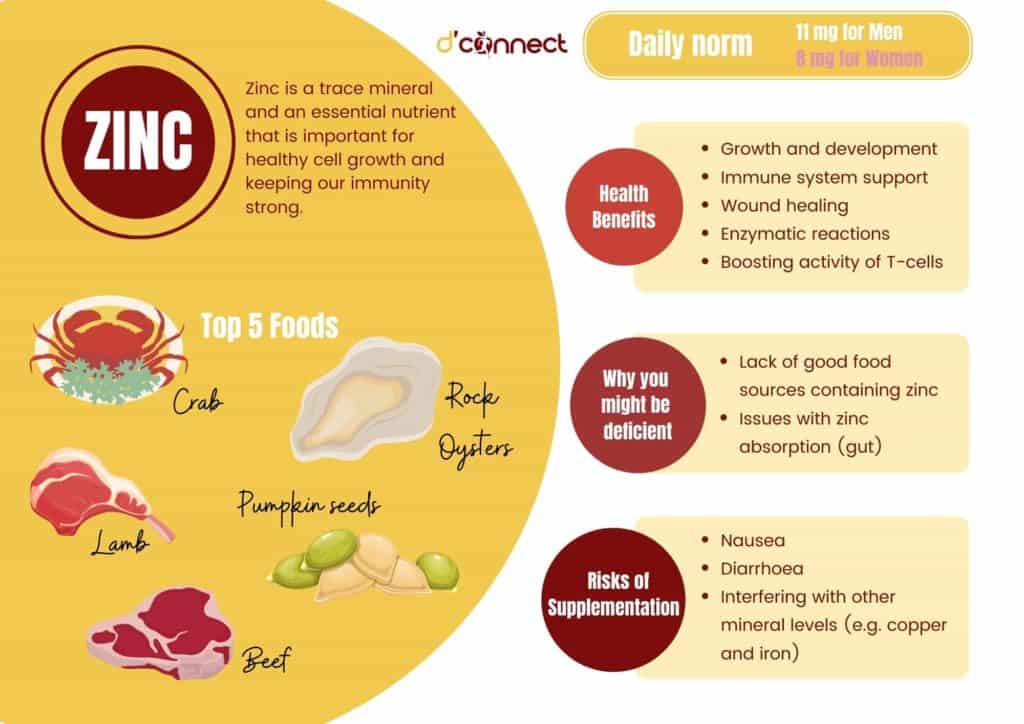
Related Questions
1. What inhibits zinc absorption?
Avoid coffee, alcohol and phytate rich foods, such as grains, for at least two hours with a zinc-containing meal or supplement to ensure good absorption.
Soak grains for at least half an hour before cooking and eating to reduce the phytate content for better mineral absorption.
2. What enhances zinc absorption?
Zinc is best absorbed when taken with a protein rich meal.
Malic acid and lactic acid in a meal can also enhance absorption. Good healthy food sources include grapes, watermelons, cherries and carrots and fermented vegetables.
3. What is the best form of zinc to take orally?
The most well absorbed and tolerated forms of zinc to take orally are zinc bisglycinate (or zinc glycinate) and zinc picolinate, however some forms are better for different conditions and it is is recommended to consult a trained nutritionist or naturopath for an individualised prescription.
4. Is it safe to take zinc supplements while pregnant?
There are safe zinc supplements available, however always look for specialised pregnancy safe formulas as these will have the right doses for mum and baby, and always check with a health professional first.
5. What is the best time to take zinc supplements?
For optimal absorption it is recommended taking zinc before food in the morning, however the ideal time to take zinc is individualised and may depend on your health needs and the form being taken.
For other great articles on nutrients, vitamins and minerals, see our Nutrients page.
Megan is a qualified, registered naturopath and medical herbalist based in Laingholm, Auckland. She is also a trained journalist with a bachelor’s degree in communication studies and a mother of two, with a passion for plant medicine and holistic nutrition.
A personal health journey has directed Megan to develop a specific interest in digestive and respiratory health, allergies, autoimmune conditions and children’s wellness. You can find more about Megan and her practice at Megan Rodden – Naturopath.
References
(1) H. H. Sandstead (2012) Zinc Nutrition: From Discovery to Global Health Impact.
(2) Skalny, A. V., Aschner, M., & Tinkov, A. A. (2021). Zinc. Advances in food and nutrition research 96. Retrieved from https://www.ncbi.nlm.nih.gov/pmc/articles/PMC8208231/
(3) Liu, E. Pimpin, L. Shulkin, M. Kranz, S. Duggan, C.P. Mozaffarian, D. Fawzi, WW. (2018). Effect of Zinc Supplementation on Growth Outcomes in Children under 5 Years of Age. Nutrients. Retrieved from https://www.ncbi.nlm.nih.gov/pmc/articles/PMC5872795/
(4) Prasad A. S. (2008). Zinc in human health: effect of zinc on immune cells. Molecular medicine (Cambridge, Mass.). Retrieved from https://doi.org/10.2119/2008-00033.Prasad
(5) Lin, P. H., Sermersheim, M., Li, H., Lee, P., Steinberg, S. M., & Ma, J. (2017). Zinc in Wound Healing Modulation. Nutrients, 10(1), 16. Retrieved from https://doi.org/10.3390/nu10010016
(6) Maret, W. (2013). Zinc biochemistry: from a single zinc enzyme to a key element of life. Advances in nutrition (Bethesda, Md.), 4(1), 82–9. Retrieved from https://doi.org/10.3945/an.112.003038
(7) Kaltenberg, J., Plum, L.M., Ober-Blöbaum, J.L., Hönscheid, A., Rink, L. and Haase, H. (2010), Zinc signals promote IL-2-dependent proliferation of T cells. Eur. J. Immunol., 40: 1496-1503. Retrieved from https://doi.org/10.1002/eji.200939574
(8) Yee, BE. Richards, P. Sui, JY. Marsch, AF. (2020). Serum zinc levels and efficacy of zinc treatment in acne vulgaris: A systematic review and meta-analysis. Dermatol Ther. doi: 10.1111/dth.14252. PMID: 32860489.
(9) Goldman, R. D. (2013). Zinc supplementation for acute gastroenteritis. Canadian family physician Medecin de famille canadien.
(10) Harris T, Gardner F, Podany A, Kelleher SL, Doheny KK. Increased early enteral zinc intake improves weight gain in hospitalised preterm infants. Acta Paediatr. 2019 Nov;108(11):1978-1984. doi: 10.1111/apa.14828. Epub 2019 May 27. PMID: 31033040.
(11) Yamaguchi M. Role of nutritional zinc in the prevention of osteoporosis. Mol Cell Biochem. 2010 May;338(1-2):241-54. Retrieved from doi: 10.1007/s11010-009-0358-0. Epub 2009 Dec 25. PMID: 20035439.
(12) Ranasinghe P, Wathurapatha WS, Galappatthy P, Katulanda P, Jayawardena R, Constantine GR. (2018). Zinc supplementation in prediabetes: A randomized double-blind placebo-controlled clinical trial. J Diabetes. Retrieved from doi: 10.1111/1753-0407.12621. Epub 2018 Jan 3. PMID: 29072815.
(13) Mohammadifard N, Humphries KH, Gotay C, Mena-Sánchez G, Salas-Salvadó J, Esmaillzadeh A, Ignaszewski A, Sarrafzadegan N. (2019). Trace minerals intake: Risks and benefits for cardiovascular health. Crit Rev Food Sci Nutr. Retrieved from doi: 10.1080/10408398.2017.1406332. Epub 2017 Dec 13. PMID: 29236516.
(14) Ota, E. Mori, R. Middleton, P. Tobe-Gai, R. Mahomed, K. Miyazaki, C. Bhutta, ZA. (2015). Zinc supplementation for improving pregnancy and infant outcome. Cochrane Database Syst Rev. doi: 10.1002/14651858.CD000230.pub5. PMID: 25927101; PMCID: PMC7043363.
(15) Warthon-Medina, M. Moran, VH. Stammers, AL. Dillon, S. Qualter, P. Nissensohn, M. Serra-Majem, L. Lowe, NM. (2015) Zinc intake, status and indices of cognitive function in adults and children: a systematic review and meta-analysis. Eur J Clin Nutr. Retrieved from doi: 10.1038/ejcn.2015.60. PMID: 25920424.
(16) K, Michael Hambidge. Zinc and pneumonia, (2006). The American Journal of Clinical Nutrition, Volume 83, Issue 5, Pages 991–992. Retrieved from https://doi.org/10.1093/ajcn/83.5.991
(17) Barnett, JB. Hamer, DH. Meydani, SN. (2010). Low zinc status: a new risk factor for pneumonia in the elderly? Nutr Rev. doi: 10.1111/j.1753-4887.2009.00253.x.
(18) Gupta, M. Mahajan, VK. Mehta, KS. Chauhan, PS. (2014). Zinc therapy in dermatology: a review. Dermatol Res Pract. doi: 10.1155/2014/709152.
(19) Health Direct Australia. (2022). Foods High in Zinc. Retrieved from https://www.healthdirect.gov.au/foods-high-in-zinc#best-sources
(20) National Health and Medical Research Council, Australian Government Department of Health and Ageing, New Zealand Ministry of Health. (2020). Nutrient Reference Values for Australia and New Zealand. Retrieved from https://www.nhmrc.gov.au
(21) Abdollahi, S., Toupchian, O., Jayedi, A., Meyre, D., Tam, V., & Soltani, S. (2020). Zinc Supplementation and Body Weight: A Systematic Review and Dose-Response Meta-analysis of Randomized Controlled Trials. Advances in nutrition (Bethesda, Md.), 11(2), 398–411. Retrieved from https://doi.org/10.1093/advances/nmz084
(22) Safai-Kutti S. (1990). Oral zinc supplementation in anorexia nervosa. Acta Psychiatr Scand Suppl. PMID: 2291418.
(23) Lin, P. H., Sermersheim, M., Li, H., Lee, P., Steinberg, S. M., & Ma, J. (2017). Zinc in Wound Healing Modulation. Nutrients, 10(1), 16. Retrieved from https://www.ncbi.nlm.nih.gov/pmc/articles/PMC5793244/
(24) Nutrients and foods for the primary prevention of asthma and allergy: Systematic review and meta-analysis. (2010). Nurmatov, Ulugbek et al. Journal of Allergy and Clinical Immunology, Volume 127, Issue 3, 724 – 733.e30. Retrieved from https://pubmed.ncbi.nlm.nih.gov/21185068/
(25) Maes, M. Mihaylova, I. De Ruyter, M. (2006). Lower serum zinc in Chronic Fatigue Syndrome (CFS): relationships to immune dysfunctions and relevance for the oxidative stress status in CFS. J Affect Disord. doi: 10.1016/j.jad.2005.11.002.
(26) Sempértegui, F. Díaz, M. Mejía, R. Rodríguez-Mora, OG. Rentería, E. Guarderas, C. Estrella, B. Recalde, R. Hamer, DH. Reeves, PG. (2007). Low concentrations of zinc in gastric mucosa are associated with increased severity of Helicobacter pylori-induced inflammation. Helicobacter. doi: 10.1111/j.1523-5378.2007.00476.x. PMID: 17241300.
(27) Therapeutic Research Centre, (2022). Zinc. Natural Medicines Database. Retrieved from https://naturalmedicines.therapeuticresearch.com/


